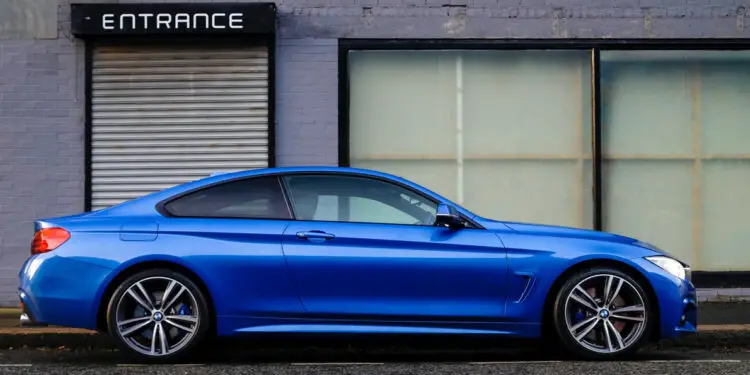Questions to Ask Before you Lease a Car

If you stumbled upon this piece of information, chances are you think about leasing a car. But if you never leased a vehicle, you’re overwhelmed because you don’t really understand what a lease contract implies. Well, don’t stress yourself out because you’re not the only individual struggling to understand what leasing involves. Lease agreements vary from one provider to another, and it’s crucial to get familiar with the terms and conditions to understand what the process implies.
Leasing is an excellent solution if you’re looking for an affordable way to get a new car. But because you’re new to the leasing world, you need to ensure you get the best deal. To help you with the decision, we created a list of questions.
What does it mean to lease a vehicle?
To put it in simple words, a lease is a long-term rental agreement you sign with a vehicle provider. If you want to drive a new vehicle but don’t want to pay for its depreciation, leasing is the best solution. However, keep in mind that leasing comes with particular terms and conditions, and if you’re known for driving cars until they fall apart, it may not be the best solution for you because the provider expects to maintain the vehicle in good condition. At the end of the day, you pay for renting a property they own, and they must ensure they can further use it when your leasing contract ends.
Is leasing the best option for me?
The experts from Economy Leasing UK state that leasing a vehicle comes with several benefits, such as:
– Ability to change cars without selling
– Maintenance
– Lower payments than a traditional loan
– Access to the latest vehicle models
– Convenience
So, you should ask yourself if this solution is ideal based on the advantages and disadvantages it offers. If you’d like to drive a new car every couple of years, you may benefit from leasing. However, if you want to keep the same car for many years, buying one could be wiser.
How often do I need to drive the car?
Ask yourself how often you intend to drive the car and evaluate your driving habits to determine what model would better suit your needs. If you plan to change the vehicle in a couple of years or expect to alter your driving habits, buying a new car may not be the best idea. But if you need a vehicle with the latest technology on the market, leasing is the ideal option because it provides you with access to a top-notch vehicle without requiring upfront payment. But ensure that your lease term length fits your needs and budget.
Is it more advantageous to lease than buy a car?
Vehicle leasing is more advantageous if you want to drive a new car every couple of years because it lowers payments. You can drive a more expensive vehicle than you’d afford to buy if you’d have to make an upfront payment. For example, your budget may not allow you to purchase and maintain an expensive car like a Lexus, but leasing enables you to choose from a varied range of luxury cars.
A disadvantage is that you cannot keep the car once the leasing contract is up, so you need to renew it or get another car. Lease terms vary from one company to another, but the average contract lasts 2 to 5 years. Also, some leases include mileage caps; if you exceed the established mileage, the provider can ask for a fee.
What is the mileage cap?
The car’s mileage impacts its resale value, so leases come with an annual mileage limit. The average contract limits the annual mileage to 10,000 to 15,000, considering that the average driver puts around 12,000 miles per year on their vehicle.
Ask the dealership about their mileage limit and cost-per-mile penalty in case you exceed the limit. If their limit is too low, you can try to negotiate a customised one that better meets your driving needs. However, keep in mind that they can also increase the monthly payments when the dealership agrees to escalate the mileage cap. If you’re a high-mileage driver (you put over 20,000 miles per year), it may be a better idea to buy a vehicle.
Can I lease a used car?
Most leasing companies offer new cars, but some specialise in used car leases. However, used car leases are for vehicles in good condition, with few miles because leasing providers want to offer only high-quality services. If you want to lease a used car to save on your monthly payments, get in touch with your local dealership to find out if they offer this kind of lease.
What maintenance expenses do I have to pay?
Most leasing companies take annual maintenance hassle by including maintenance costs in the contracts. However, the average leasing agreement requires you to handle the general maintenance of the car during the contract period, as if you owned it. This means that depending on the contract you sign; you may have to pay for oil changes, insurance, maintenance to the tires and brakes, and other similar regular upkeep expenses. Also, you need to pay the taxes your local authorities assess for the vehicle.
Besides the maintenance expenses, you’re responsible for the wear and tear you produce to the car. You may think that food or drink stains on the upholstery are normal wear and tear with a car, but the provider may consider them significant damage that impacts its value. Ensure you understand what you agree to regarding maintenance and damage and what the dealer allows as normal wear and tear. In advance, you want to know how you should deal with damage like dings in the doors or stains on the upholstery.
The bottom line
The best way to negotiate the best leasing agreement is to arm yourself with knowledge. Don’t be afraid to ask questions because it’s crucial to understand what your contract requires on your part. It is always good to get a car history report before leasing or purchasing a vehicle to avoid scams and outstanding debts.










